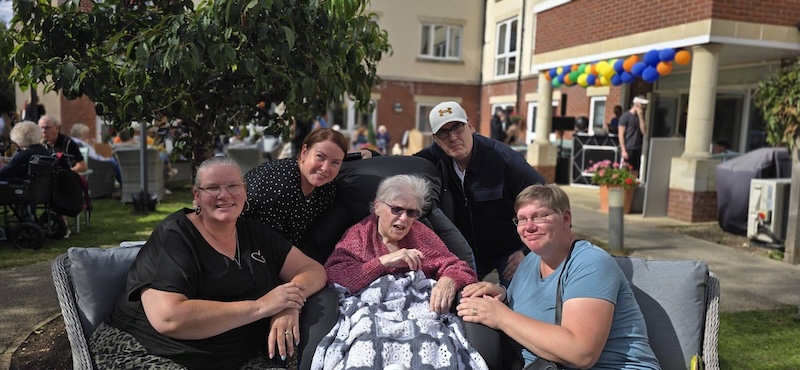The Importance of Garden Spaces in Care Homes
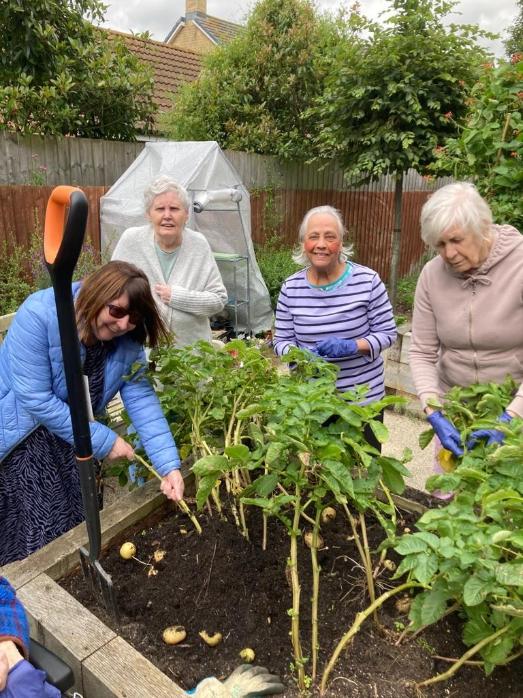
When searching for a care home, one of the features many care seekers consider is access to outdoor spaces, particularly garden areas. These garden spaces are not simply decorative, they are central to enhancing daily life and overall well-being for residents living in care homes. The positive impacts of spending time outdoors extend well beyond physical health and have huge mental health benefits and allow residents to continue their cherished hobbies and routines. Understanding the value of garden spaces can help families and prospective residents make informed choices about their future environment.
Why Outdoor Spaces Matter
Garden spaces in care homes offer a vital link to the natural world for residents who may otherwise face limitations in accessing parks and wider open areas. Being able to step outside and easily see the changing seasons first-hand brings comfort and provides gentle stimulation. For those with limited mobility, a garden may be their primary opportunity to encounter the outdoors regularly.
Time spent outdoors creates familiarity and improves orientation. No matter their care needs, elderly residents benefit from sensory stimulation that comes from observing colourful flowers, feeling natural sunlight or listening to garden sounds like birdsong or water features.
The Physical Benefits of Garden Spaces
Access to garden spaces encourages movement in a way that is comfortable and flexible. Many residents can experience significant benefits from gentle exercise through garden walks or helping with gardening. These forms of physical activity contribute to maintaining mobility and fine motor skills.
Fresh air and regular exposure to natural sunlight can also improve circulation, regulate sleep patterns, and boost cardiovascular health. Having the option of both indoor and outdoor spaces daily allows residents to live a varied lifestyle full of whatever they love most. Also, it encourages them to move around more, which improves their overall physical health.
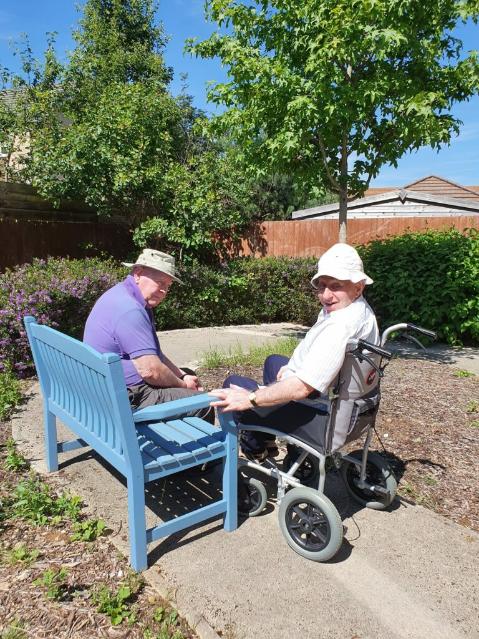
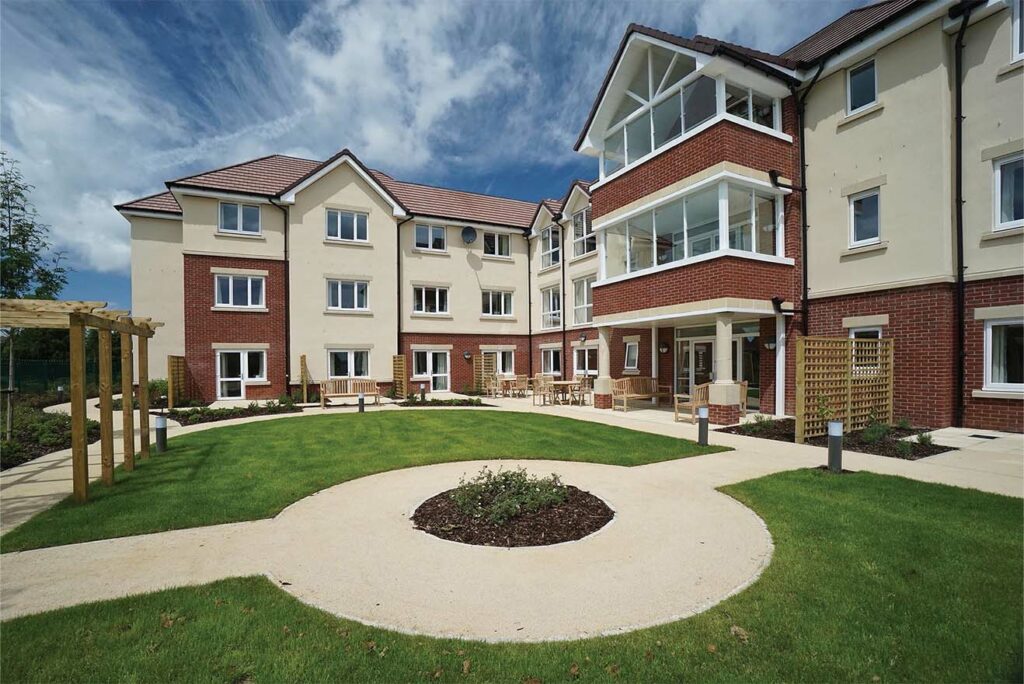
Mental Health and Emotional Well Being
Garden spaces offer therapeutic benefits that play a key role in boosting mental health. A well-tended garden can encourage calm feelings and provide a sense of peace, as well as being beautiful to look at.
For residents living with dementia, the sights and scents of plants may trigger memories and assist with their cognitive function. Many residents experience stronger self-esteem and improved mood when taking part in routine outdoor activities, even in small ways.
Social Interaction and Community
A garden is often one of the most sociable parts of a care home and it naturally brings people together. It is a place where residents gather for group activities or lighthearted conversation and where families come to visit in a relaxed setting. Outdoor terraces and shaded seating areas encourage interaction throughout the day as residents won't get too hot or tired.
Garden parties and events create opportunities for the local community and family members of residents to come and get involved through music, activities and refreshments. These events support meaningful interactions and allow residents to engage with fellow residents in a new setting and create relationships with individuals they typically wouldn't interact with. The open, accessible areas make it easy to interact without pressure.
Boosting Self-Esteem and Sense of Purpose
Participating in gardening activities can foster a lasting sense of purpose and pride. Many residents enjoy planting seeds, nurturing vegetables, or simply watching plants grow. These tasks allow individuals to set achievable goals and see tangible results over time, which helps to increase motivation and boost self-esteem.
For residents who once had their own gardens, reviving that role through care home gardening provides comfort and connection to past routines. Whether someone waters pots, arranges cut flowers, or refills a nearby bird table, the reassurance of being useful and involved helps individuals to feel confident and valued.
Sensory Stimulation and Cognitive Engagement
A garden stimulates the senses in a way that few other areas of a care home can. From the scent of herbs to the sound of leaves in the breeze, this sensory input offers important exercise for the mind. The natural setting helps strengthen concentration and a feeling of calmness.
Residents with sensory impairments especially benefit from this type of environment. Touching plants, observing their changes in colour or listening to water features can ease confusion and help them feel relaxed. It is a great way for individuals to communicate, especially those who struggle to do so verbally.
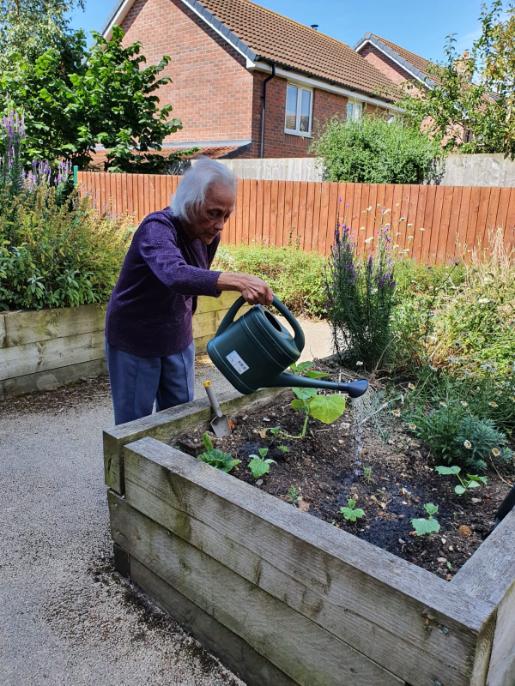
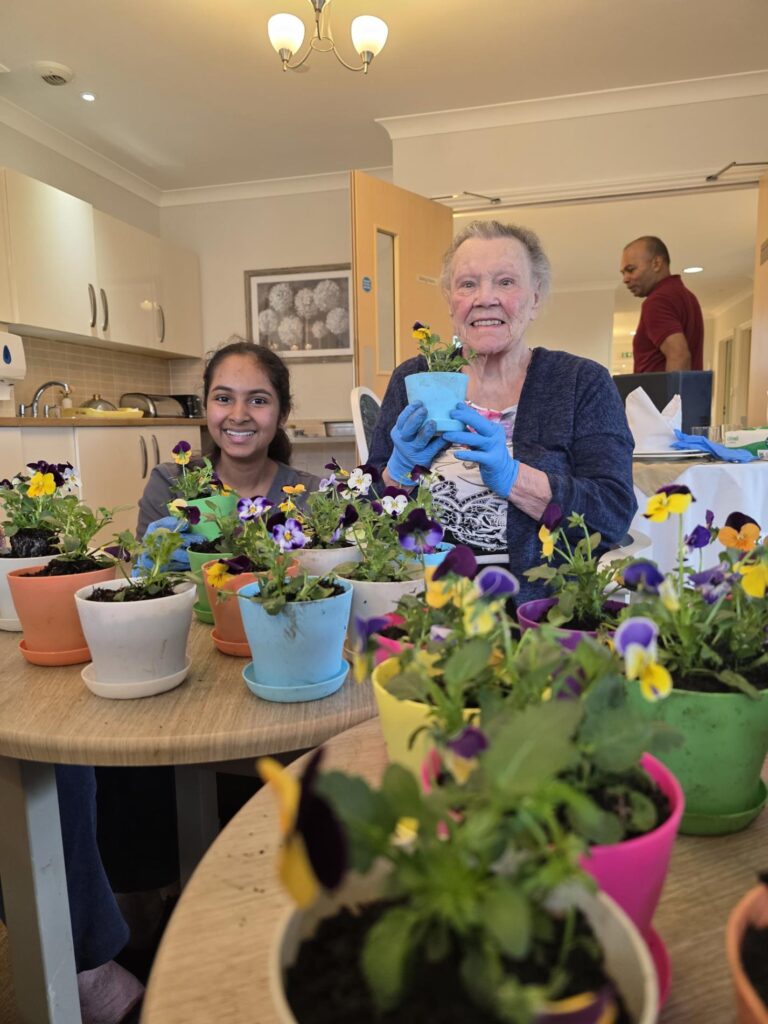
Garden Accessibility
In many care homes, the garden is purpose-built to ensure it can accommodate all residents. Level paths are made to accommodate wheelchairs and strategically placed rest areas make it easy for all residents to enjoy the space confidently and safely. Raised beds make planting flowers or taking part in gardening possible for individuals with limited mobility.
The slopes to and from the garden are always gentle and allow for specialised equipment to easily move outdoors. This ensures that if residents wish to, they can always get involved or even just reap the benefits that the outdoors can bring.
Outdoor Activities in Care Home Gardens
Activities are at the heart of any high-quality care home, and the option to bring these outside can enhance the overall experience even more. Gardening clubs are a popular feature, giving residents the chance to plant and care for herbs or flowers. Residents can then see these flourish and enhance the green spaces, which can offer a great sense of achievement.
Other outdoor activities that could be included at a care home include outdoor exercise classes, bowling, arts and crafts, jigsaws, balloon tennis and more. During a community event, there are also typically stalls and games available for everybody to get involved in. These types of activities offer something to individuals at every stage of care, including those receiving respite care or living with complex needs.
Therapeutic Benefits for Residents with Dementia
Gardens play a vital therapeutic role for residents living with dementia. Outdoor spaces are often less overwhelming than indoor environments and offer natural opportunities for calm and orientation. A sensory garden filled with plants that have distinctive smells or textures can calm restlessness or support moments of recognition.
Familiar plants or seasonal patterns often also help trigger positive memories. The natural environment also supports gentle movement and improved cognitive function by guiding residents through experiences that feel safe and reassuring.
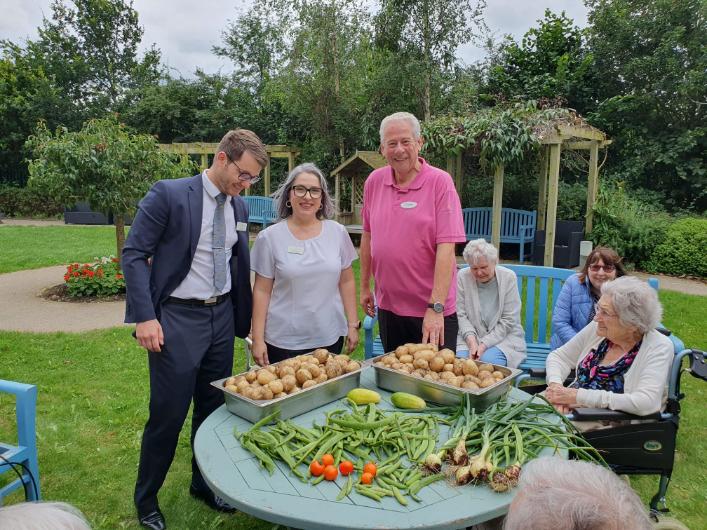
Our Beautiful, Landscaped Gardens at Ridgeway Rise Care Home
At Ridgeway Rise, we are proud of our exceptional, spacious garden areas that allow residents to enjoy life exactly how they wish. Our well-designed outdoor areas are accessible to all residents and encourage active participation and connection.
With peaceful seating areas, raised flower beds and plenty of fresh air, our care home in Swindon perfectly integrates the outdoor experience into daily life. Residents are always invited to take part in gardening activities, join us for our garden parties, or simply enjoy a gentle stroll in a safe and natural setting. Whether you require residential care, nursing care, dementia care or respite care, there is something for everybody to enjoy in our beautiful gardens.
It is important to us that our gardens are included in all aspects of life at Ridgeway Rise, so we regularly grow fresh produce such as green beans, potatoes, tomatoes and herbs to incorporate into our dining experience. Our menu is full of nutritious and fresh ingredients and it helps our residents feel a huge sense of achievement and pride knowing they played a role in the delicious meals they enjoy daily.
Whether you’re looking for yourself or your family, booking a tour and discovering our gardens at Ridgeway Rise for yourself will allow you to ask any questions and get a true insight into what care home life is like. Get in touch today. We can't wait to meet you!





